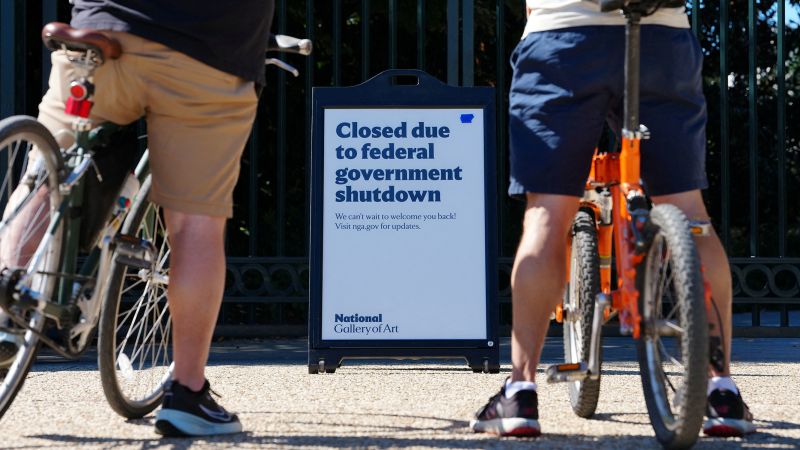Current Government Shutdown: An Uncertain Path to Resolution
The ongoing government shutdown shows little sign of resolution as the weekend approaches. Historically, these standoffs seem unsolvable until one side unexpectedly concedes. However, the current situation is unique, suggesting a potentially prolonged impasse.
Potential Outcomes for Ending the Shutdown
Several scenarios could lead to the shutdown’s conclusion. The most probable involves one side backing down, a common resolution in past shutdowns. Typically, the public disapproves of using shutdowns as bargaining tools, pressuring the demanding side to relent.
Recent developments indicate possible fractures within the Democratic ranks. Three Democratic senators have already supported the GOP’s “clean” resolution. If a few more follow suit, maintaining a filibuster becomes challenging for the Democrats.
Public Perception and Political Pressure
While initial polls indicate more Americans blame the GOP, the situation could shift as the shutdown’s effects become more tangible. For instance, military personnel missing paychecks could sway public opinion against the Democrats, despite sympathy for their policy goals, such as extending enhanced Obamacare subsidies.
The administration’s threats to target Democratic-favored programs add another layer of complexity. Fear of lasting changes imposed by Trump previously led Democrats to compromise during earlier funding disputes.
Negotiation Dynamics and Future Debates
There is uncertainty about how far the administration will push its threats, with some Republicans cautioning against actions that could harm their political standing. Time may not favor the Democrats, as public insistence on extending subsidies could wane, especially if they can be addressed later with less leverage.
Democrats might secure some concessions from the shutdown, though not everything they desire. Republicans could offer assurances for future debates on extending subsidies, given political incentives to do so. A recent KFF poll shows strong public support for these subsidies, even among MAGA Republicans.
Republican Stance and Potential Concessions
The GOP has not ruled out extending subsidies, expressing willingness to negotiate post-shutdown. Senate Majority Leader John Thune emphasized the need for government reopening before discussions can proceed. Some GOP senators have proposed subsidy-related measures, potentially pressuring their party.
Trump might support this resolution, despite his campaign against Obamacare, as he is less concerned about deficits than other Republicans. However, Democrats remain skeptical of mere assurances, and Republicans insist negotiations occur only after reopening the government.
Exploring Other Bargaining Chips
While Obamacare subsidies are a likely concession, other factors are at play. Democrats distrust the administration’s commitment to any agreement, given past actions to void congressionally authorized spending. The “rescissions” process, allowing spending cancellations with partisan majorities, further complicates trust.
Democrats might push for measures to curb these practices, though it’s unclear what form such measures could take. Alternatively, they could seek other concessions to justify reopening the government.
Unlikely Scenarios and Power Shifts
The least likely outcome involves Republicans conceding to Democratic demands, a scenario with little recent precedent. This could occur if prolonged shutdowns continue to blame the GOP, or if public insistence on subsidies remains strong.
Republicans might fear appearing to strip subsidies from millions, or Trump might tire of the standoff, viewing concessions as inevitable. However, such a shift in power dynamics seems improbable, with Trump likely resisting any significant concessions.
